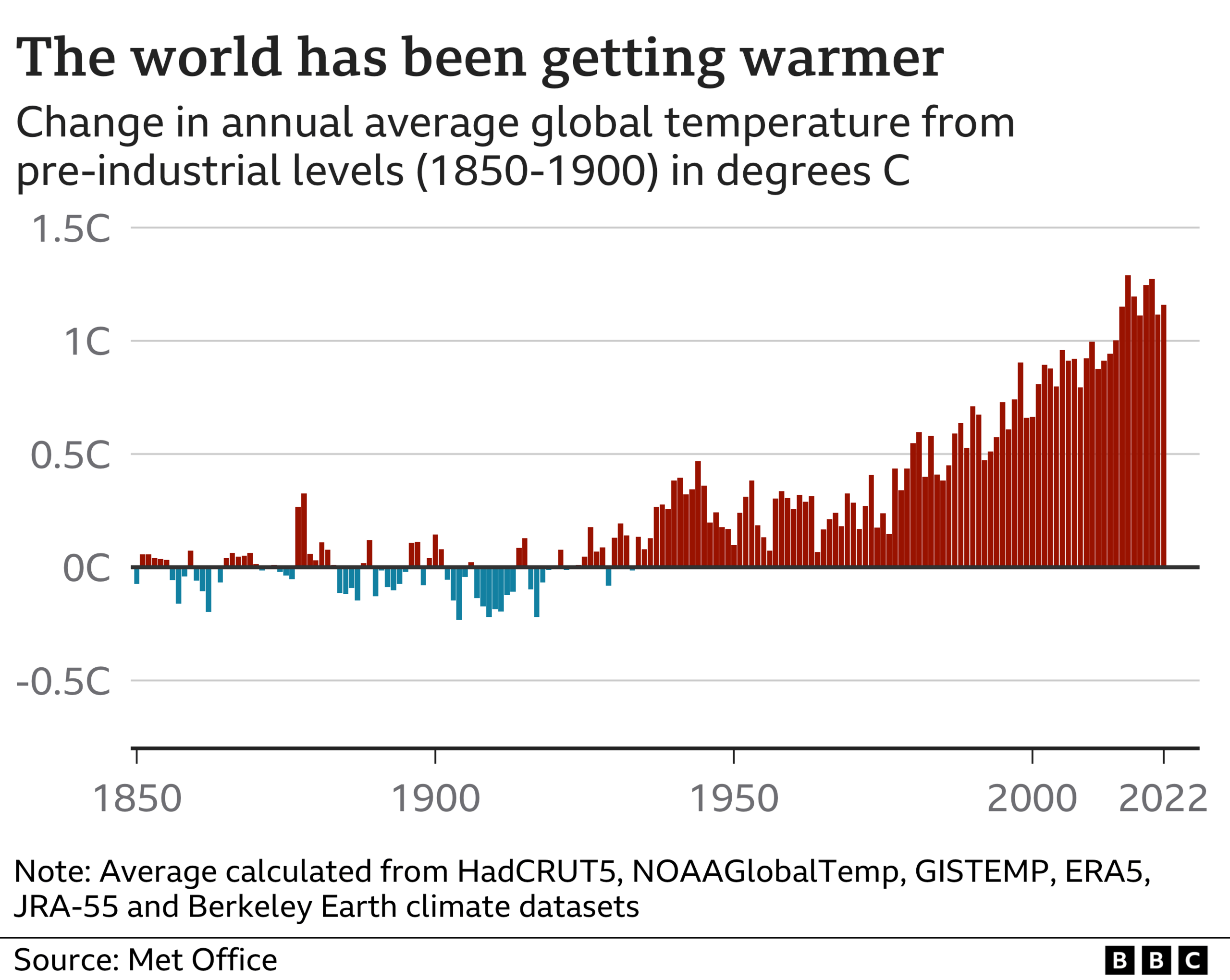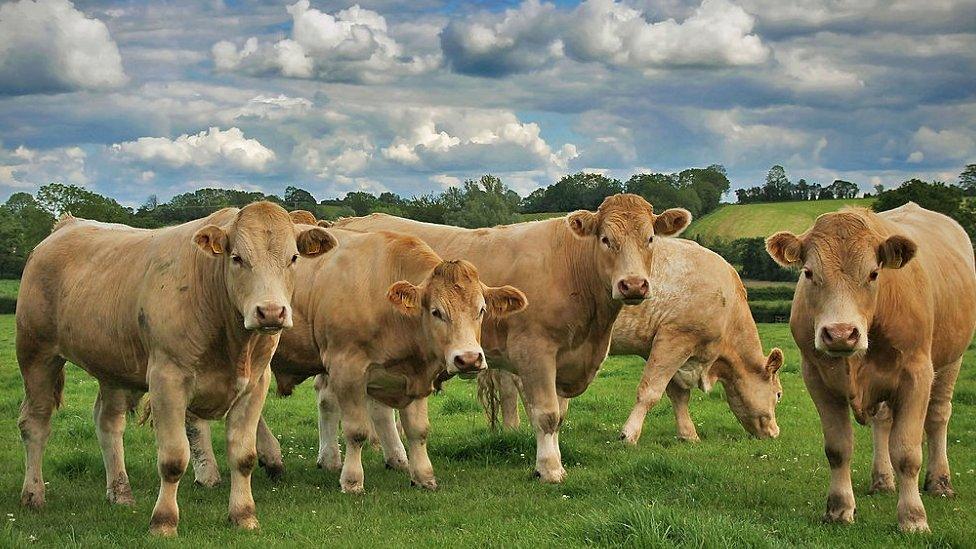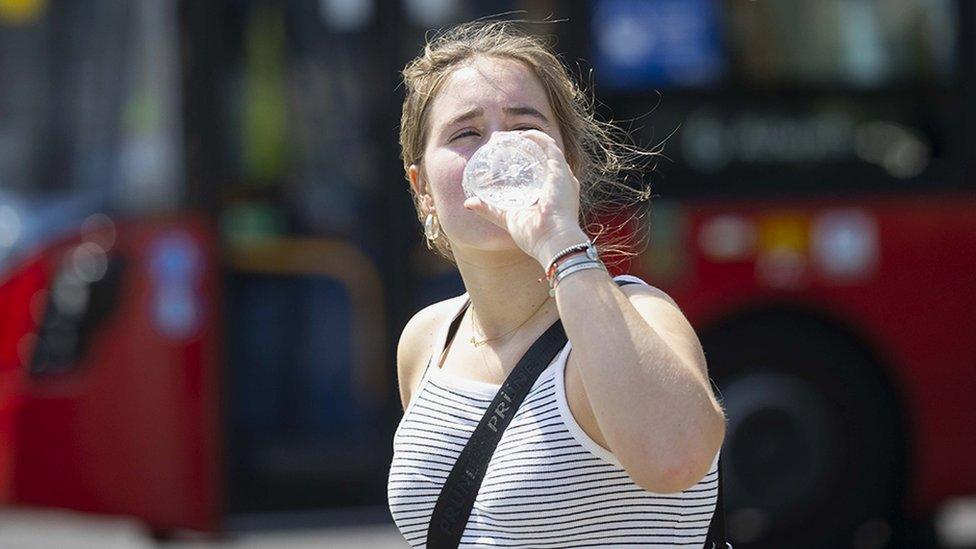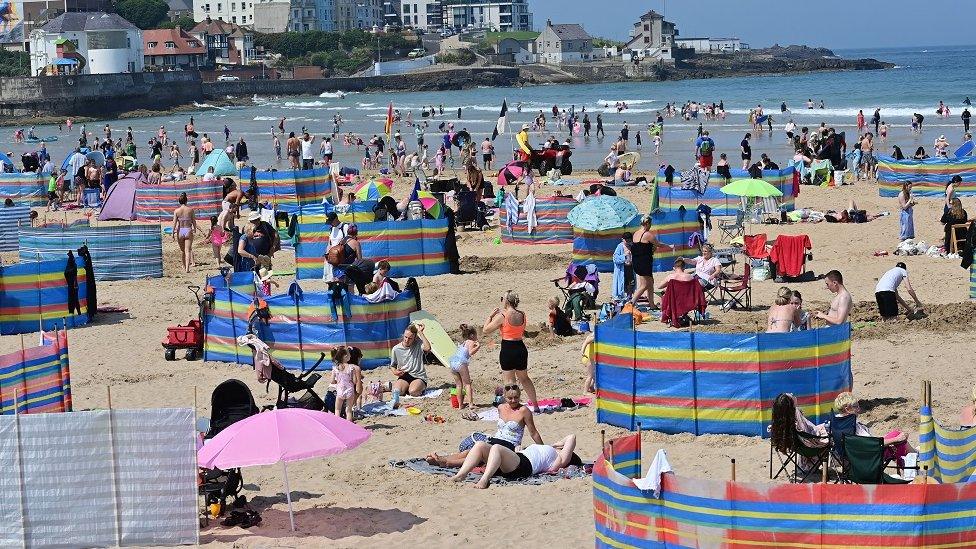Climate: Last year was hottest on record in Northern Ireland
- Published

Crowds flocked to Portrush beach in July last year
Northern Ireland experienced its hottest year on record in 2022, according to a Stormont report.
The data is included in a publication by the Department of Agriculture, Environment and Rural Affairs.
It provides information on environmental indicators in areas including public attitudes, climate, air quality and biodiversity.
The mean temperature across the 12 months of last year was 9.83C, according to the Met Office.
Climate records, the Northern Ireland Environmental Statistics Report 2023, external states, "suggest that the mean annual temperature has been steadily increasing since the end of the 19th century".
The report adds: "The number of days per year where the temperature exceeded 20C has also been increasing in the same timescale".
The lowest mean annual temperature (7.35C) was recorded in 1879.
Earlier this month scientists said there was now a 66% chance the world will pass what is seen as the crucial 1.5C global warming threshold by 2027.

Hitting the threshold would mean the world is 1.5C warmer than it was during the second half of the 19th century, before fossil fuel emissions from industrialisation really began to ramp up.
Daera's environmental statistics report also indicates that illegal dumping and litter is the biggest environmental concern for the public in Northern Ireland.
The public sees climate change and pollution as the biggest threats to the region's biodiversity, while people are also worried about how waste is managed.
Reusing and recycling are the most common things people who want to help the environment do, the report says.

Emissions from livestock in Northern Ireland have increased by 9.1 per cent, according to the report
It also details that roadside levels of nitrogen dioxide are falling in Northern Ireland and plastic bag use is continuing to fall.
NI emissions from livestock have increased by 9.1 per cent since 2001, according to the report. This compares with a 14.8 per cent decrease for the UK as a whole over the same period
However, the ammonia emissions from nitrogen fertilisers saw a 21 per cent decrease since 2001. This is associated with a significant reduction in fertiliser use, particularly on grassland, the report states.
Related topics
- Published5 January 2023

- Published18 July 2022

